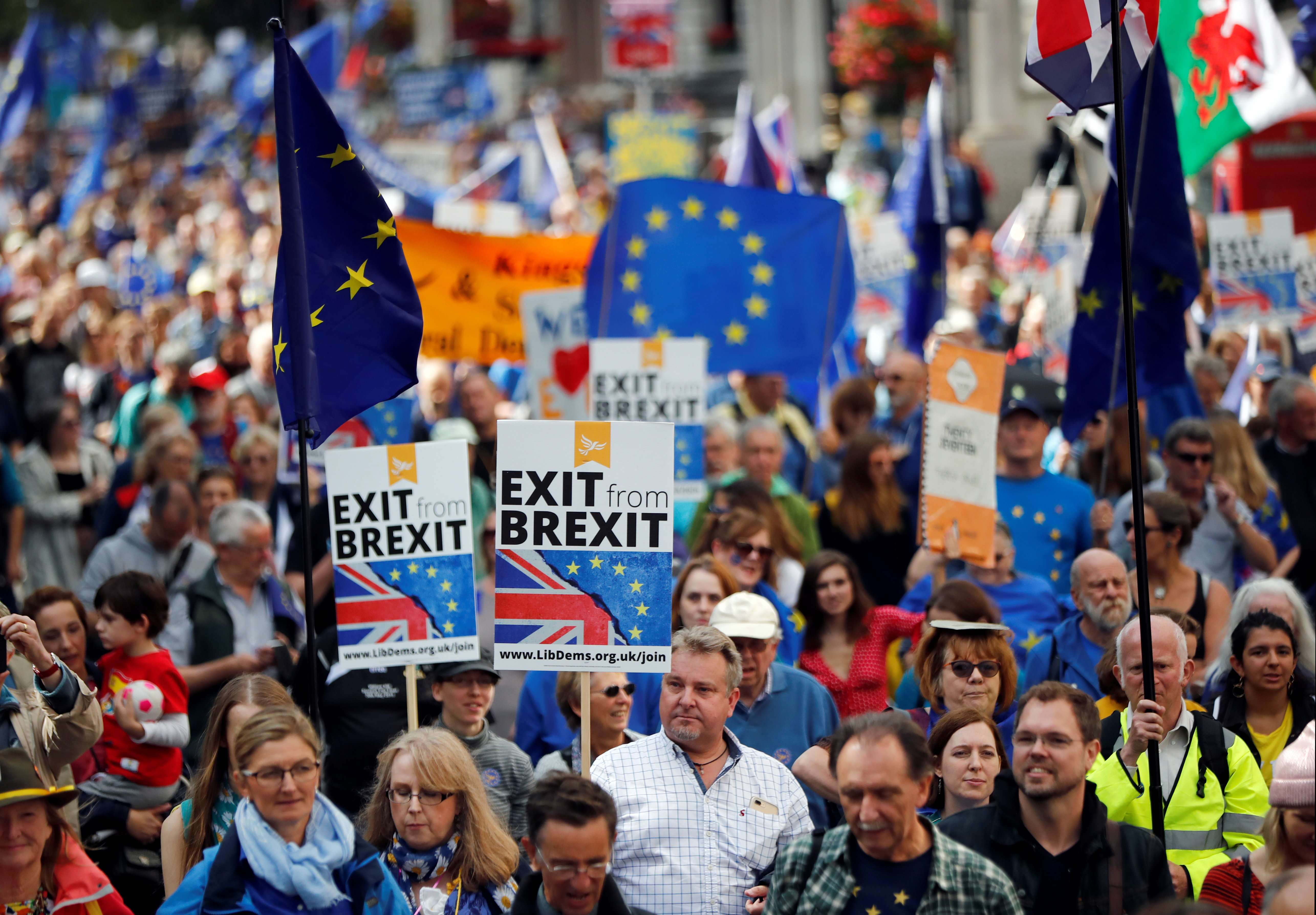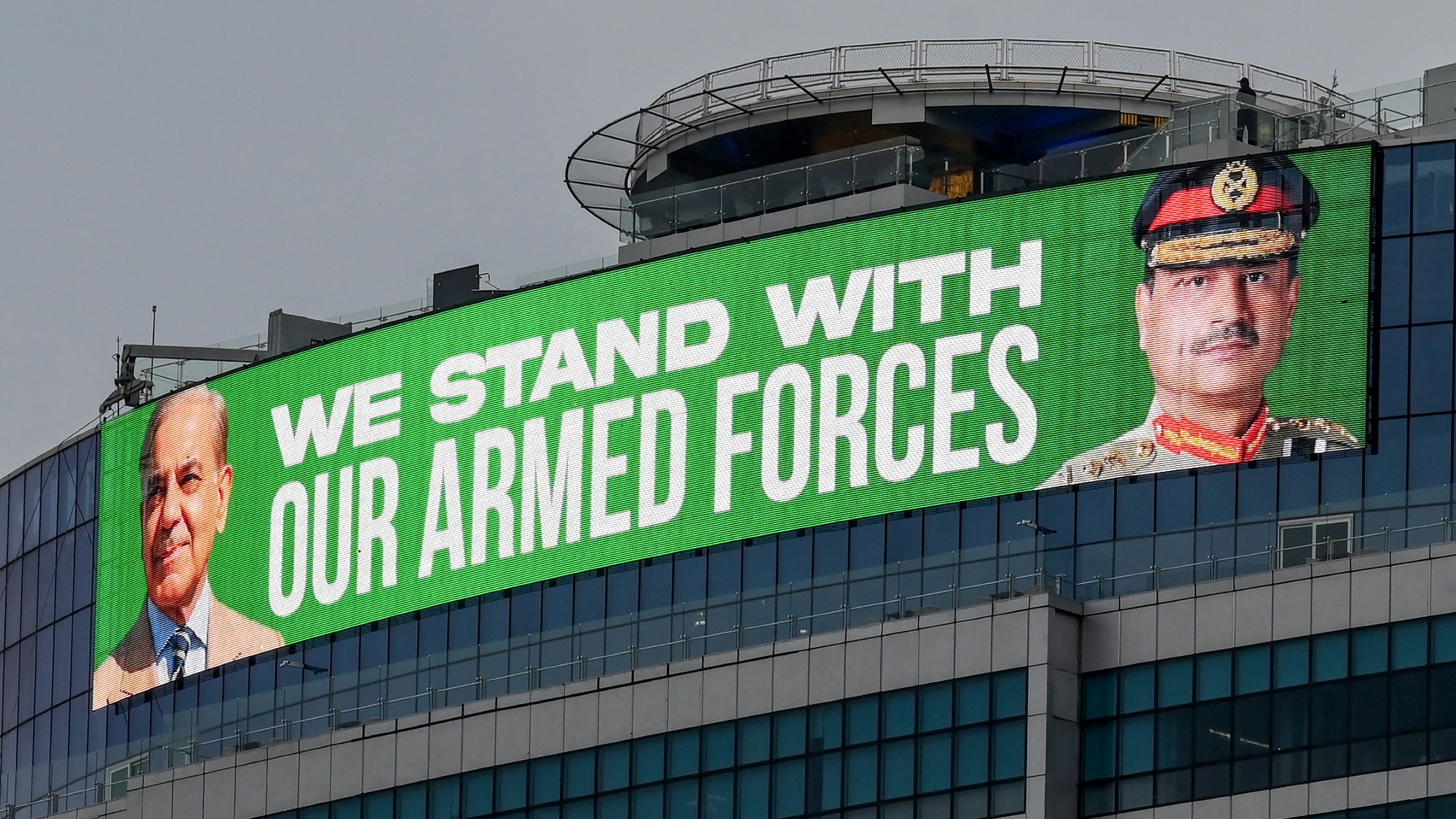Brexit is a huge mistake. It's not too late to stop it.
A second referendum could be possible, but time is running out


On June 23, 2016, U.K. citizens went to the polls to answer a seemingly straightforward question: "Should the United Kingdom remain a member of the European Union or leave the European Union?" Despite numerous predictions to the contrary, the answer, by a slim margin, was "Leave."
That the vote happened at all was thanks to a bit of political gamesmanship — a measured risk that former Prime Minister David Cameron accepted in looking to keep his party in power. The ensuing months have begun to expose Cameron's gambit, and the farce it gave birth to. But the political black hole the nation is headed for seems at least partly hidden in a collective blind spot. The transitional Brexit deal that's currently being discussed would delay the consequences of Brexit while locking them in. Because of this, now is the moment to stave off Brexit — to throw everything against the gears. There's no time to spare.
To understand what's happening now, we have to look back at how Brexit came to be.
The Week
Escape your echo chamber. Get the facts behind the news, plus analysis from multiple perspectives.

Sign up for The Week's Free Newsletters
From our morning news briefing to a weekly Good News Newsletter, get the best of The Week delivered directly to your inbox.
From our morning news briefing to a weekly Good News Newsletter, get the best of The Week delivered directly to your inbox.
In the run-up to the 2015 U.K. election, the U.K. Independence Party (UKIP), a right-wing populist group, was draining support from the Tories (the conservative party that controls the U.K. Parliament), with promises of middle-class tax cuts, and exhortations for the country to "take back control" from the EU. UKIP was polling high enough that it threatened to take votes from the Tories, and tilt seats to Labour, the country's center-left coalition. Cameron succumbed to calls to deal with the UKIP threat by promising a referendum on the U.K.'s membership in the EU. The U.K. electorate rewarded him with a majority in the House of Commons. But expectations for the PM to fulfill his promise remained.
So, Cameron delivered a set of demands to the EU, claiming that if they weren't met, the U.K. would reconsider its membership in the union. The EU called his bluff. It ceded ground on a few fronts, but refused to budge when it came to reducing the movement of immigrants from EU countries into the U.K. Fearing a backlash, or perhaps wanting to uphold his commitment, Cameron set the date for the referendum that would consequently become the expiration date for his political career.
Over the next four months, a carnival of the absurd played out across the United Kingdom. Fantastic promises were made as fear and distrust were deeply sown. One of the most memorable moments from the campaign was the introduction of the now-notorious "Brexit bus." The bright, shiny thing had an enticing lure tattooed on its flanks that promised a necessary elixir for the ailing National Health Service: A transfusion of £350 million per week could be had, if Britons would cut the cord with the EU. It was a sight to behold. It was an apparition. Indeed, it was a mirage.
Voters went to the polls and defied expectations: They gave a narrow victory to Leave. Some had spoken. All would go.
A free daily email with the biggest news stories of the day – and the best features from TheWeek.com
In the time since the referendum, much has been learned about unfounded promises that were made. And what was billed as a simple exercise has proven to be an elaborate conundrum. One thing is certain: Calling for an open-ended referendum, while lacking even a semblance of a plan for extraction, was a terrible idea. People voted on a notion, not a plan.
And yet, here we are. In March 2017, Theresa May, Cameron's successor as prime minister, triggered Article 50, which allows EU members to depart from the union. But before it goes, EU leaders have insisted the U.K. agree to some divorce terms. In other words, it can't just walk away without paying its bills. May and the Tories are clumsily slogging through these negotiations, but they're happening. At the same time, the Tories are discussing a transition deal that would give the U.K. additional time to negotiate its future arrangement with the EU, so they can answer questions like, "Does the U.K. remain in the single market after Brexit, or no?"
May is giving a speech in Florence to EU leaders today, and may outline a transition deal. Or she could draw a line in the sand. The circumstances are dire, and this speech could easily compound them.
So, is all hope lost? Maybe not. Some have suggested Labour would back a second referendum, which would give the U.K.'s citizens a second bite at the apple — this time with the exit terms negotiated and estimates of their effects at hand. Former Prime Minister Tony Blair recently put the odds of a reversal at 30 percent — slim, but not impossible. But all would be for naught if the Tories were able to consummate a transitional deal.
That means blocking the Tory transition deal is the last chance to avoid Brexit. Whether Labour's leaders are itching for the fight, or they must be hauled into it, now is the time to go to battle. Labour has taken a (slight) lead in YouGov's most recent poll of voting intentions as the window of opportunity is closing. The iron is hot. They must strike before the Tories douse the flame.
Big Ben was recently taken out of commission for repairs, but its phantom ticks are marking the Tories' march towards disaster. Between the narrow margin of the first referendum, the knowledge gained of empty campaign promises, and the orgy of incompetence that has ensued, it is readily apparent that going forward with the process is an invitation for carnage. At a time when the world is awash in instability, the U.K. must be a steadying hand. Leavers and Remainers are all Britons first, and Brexit has become something that's bad for them all. I urge them to grab the wheel and turn this Brexit bus around.
Chris Oestereich is the publisher of the Wicked Problems Collaborative and the director of publications at Thammasat University’s School of Global Studies. He is the author of a book about Brexit, The Dividing Kingdom, and the editor of What Do We Do About Inequality?
-
 Pakistan: Trump’s ‘favourite field marshal’ takes charge
Pakistan: Trump’s ‘favourite field marshal’ takes chargeIn the Spotlight Asim Munir’s control over all three branches of Pakistan’s military gives him ‘sweeping powers’ – and almost unlimited freedom to use them
-
 Codeword: December 6, 2025
Codeword: December 6, 2025The daily codeword puzzle from The Week
-
 Crossword: December 6, 2025
Crossword: December 6, 2025The daily crossword from The Week
-
 Has Zohran Mamdani shown the Democrats how to win again?
Has Zohran Mamdani shown the Democrats how to win again?Today’s Big Question New York City mayoral election touted as victory for left-wing populists but moderate centrist wins elsewhere present more complex path for Democratic Party
-
 Millions turn out for anti-Trump ‘No Kings’ rallies
Millions turn out for anti-Trump ‘No Kings’ ralliesSpeed Read An estimated 7 million people participated, 2 million more than at the first ‘No Kings’ protest in June
-
 Ghislaine Maxwell: angling for a Trump pardon
Ghislaine Maxwell: angling for a Trump pardonTalking Point Convicted sex trafficker's testimony could shed new light on president's links to Jeffrey Epstein
-
 The last words and final moments of 40 presidents
The last words and final moments of 40 presidentsThe Explainer Some are eloquent quotes worthy of the holders of the highest office in the nation, and others... aren't
-
 The JFK files: the truth at last?
The JFK files: the truth at last?In The Spotlight More than 64,000 previously classified documents relating the 1963 assassination of John F. Kennedy have been released by the Trump administration
-
 'Seriously, not literally': how should the world take Donald Trump?
'Seriously, not literally': how should the world take Donald Trump?Today's big question White House rhetoric and reality look likely to become increasingly blurred
-
 Will Trump's 'madman' strategy pay off?
Will Trump's 'madman' strategy pay off?Today's Big Question Incoming US president likes to seem unpredictable but, this time round, world leaders could be wise to his playbook
-
 Democrats vs. Republicans: who are US billionaires backing?
Democrats vs. Republicans: who are US billionaires backing?The Explainer Younger tech titans join 'boys' club throwing money and support' behind President Trump, while older plutocrats quietly rebuke new administration
